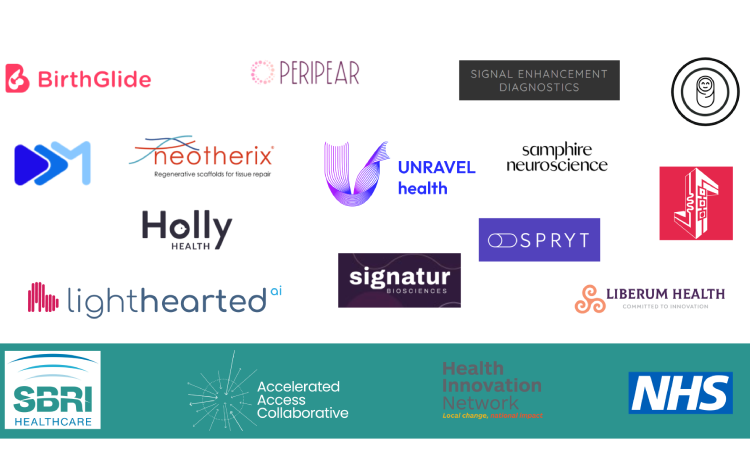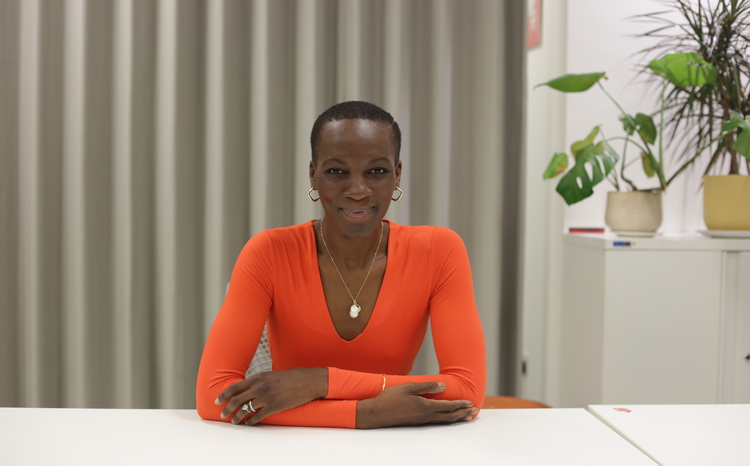New women’s health and hormones monitoring gadget will fit in a handbag
- 14 December 2023

Scientists are working on a portable device that will mean women can track and monitor their health and hormones on the go.
It will help identify symptoms that could help diagnose common female health conditions, like polycystic ovary syndrome (PCOS), and alert women if their symptoms mean they should see a doctor.
The gadget will be smaller than an iPhone and will keep track of the full picture of women’s health, from period symptoms to hormone fluctuations, mood and sleep.
It will capture data on a variety of fertility-related hormones, like luteinising hormone, which stimulates ovulation, and others like thyroid-stimulating hormone.
The project is being led by Dr Sadeque Reza Khan, a specialist in biomedical devices and sensing at Heriot-Watt University in Edinburgh, and is funded by the Scottish Government.
Dr Khan is working with viO HealthTech, whose OvuSense device provides continuous general monitoring of the reproductive cycle, and Dr Ruchi Gupta from the University of Birmingham, an expert in developing biosensors.
Improving women’s healthcare
According to the Royal College of Obstetricians and Gynaecologists (RCOG), the waiting list for gynaecology appointments, diagnosis and treatment has soared by up to 60% recently, affecting more than half a million female patients.
A study conducted by the RCOG in 2022 shows such delays can significantly affect women’s physical and mental health, as well as their quality of life.
Dr Sadeque Reza Khan said: “We’re working on building a device that will be about half the size of an iPhone and completely portable. Women will be able to take it everywhere.
“Women will be able to test both blood and urine, as well as record symptoms, which will provide the most accurate and real-time picture of their health.
“The device will transfer key data wirelessly to an app and share it with a gynaecologist.
Building on existing technology
Industrial partner viO HealthTech launched its OvuSense platform in 2016. It has already been sold to 45k+ users in the UK, Europe, USA, Canada, and Australia.
Rob Milnnes, CEO of viO HealthTech, said: “Our users tell us they want access to personalised health information and insights that can help them make informed decisions about their health not only when issues occur, but to avoid those issues in the first place.
“This project offers the exciting prospect of targeted diagnostics added to our existing monitoring system.”
Dr Ruchi Gupta from the University of Birmingham said: “We have been developing our leaky waveguide (LW) biosensor to measure different types of biomarkers; proteins, DNA, hormones, and even cells.
“Our LW biosensor will be at the heart of the gadget for women’s health monitoring. Our partnership with Dr Khan and viO HealthTech will be a key step in the translation of our LW biosensor from bench to bedside. ”
Concept to commercialisation
The team has already started working on the project, which is funded by the Scottish Government for six months.
Once they have proof of concept they’ll focus on making it commercially available, a process that could take two to three years, as well as affordable.
Heriot-Watt University is creating a global research institute in health and care technologies to accelerate the adoption of innovative work in the field. This is a significant project in that research focus, which also includes the expertise available through its Medical Device Manufacturing Centre (MDMC).





